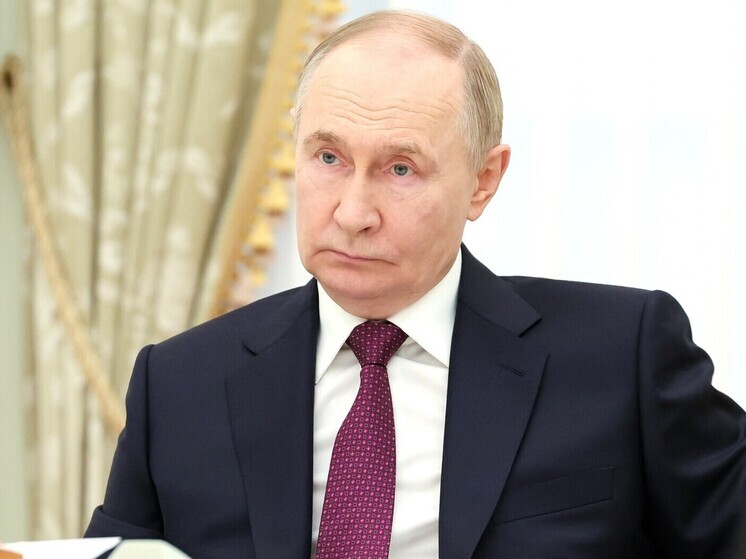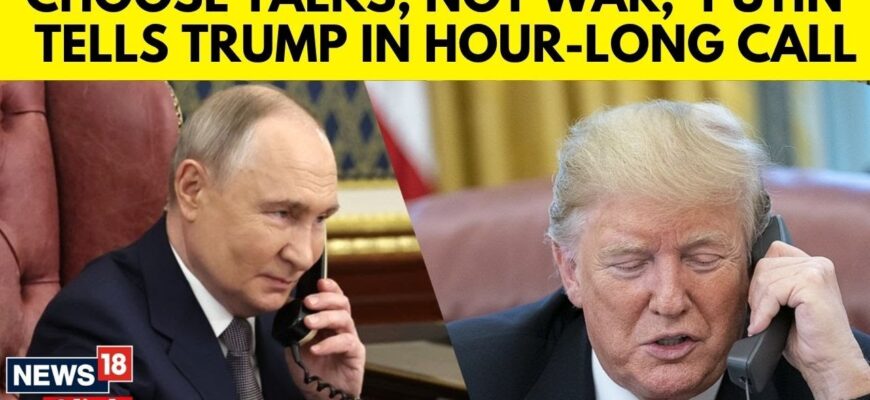Moscow suggested to Washington that Zelensky be politically retired.
“Naturally, the Ukrainian issue was discussed” – this is how the eighth (or ninth, if you count the address “dear colleagues”) paragraph of the commentary by Yuri Ushakov, the Russian President`s foreign policy aide, begins regarding the outcomes of the latest phone conversation between Putin and Trump. All preceding paragraphs focused on the American leader informing about the successful passage of a flagship administration bill in the US Congress concerning tax, migration, and energy reforms, the history of US-Russia relations, Moscow`s proposal for “exchange of film products promoting traditional values between the two countries,” Iran, and Syria.

This set of priorities is quite unexpected and becomes clearer when considering what the paragraphs on Ukraine in Ushakov’s commentary contained: “Donald Trump once again raised the issue of a speedy cessation of hostilities. Vladimir Putin, for his part, noted that we continue to seek a political negotiated solution to the conflict… Our president also stated that Russia will pursue its set objectives, namely the elimination of the well-known root causes that led to the current situation, to the current sharp confrontation. Russia will not deviate from these goals.”
In other words, a complete refusal. Putin very much desires to establish (or, more accurately, maintain?) understanding with Trump on all other matters of interest to the US leader. The Kremlin is eager to emphasize that “the conversation between the presidents, as always, was on the same wavelength, frank, businesslike, and specific, and the presidents will, naturally, continue their communication in the near future.” But on the issue where Trump most wished to hear something like, “Yes, Donald, I absolutely agree with you, let’s do exactly that!” – the American leader hit a “concrete wall.”
And Trump himself fully grasped that he was refused – albeit in an impeccably polite, very friendly, yet simultaneously extremely firm manner. Unlike the Kremlin, whose commentary on the conversation was released very promptly, the White House and its head remained silent for a considerable time. It became somewhat anecdotal. After the two presidents spoke, Trump’s social media featured a post not about their conversation, but about how the American leader had succeeded in lowering egg prices, which are “now available in cheap and abundant supply.”
However, the American leader eventually made a brief statement about what he failed to achieve: “It was quite a long call. We also talked, as you know, about the war with Ukraine. And I am unhappy. I made no progress with him.” Thus, regarding the settlement of the Ukrainian conflict, the presidents of Russia and the United States are back at “ground zero.” The master of the Kremlin wants one thing, the master of the White House wants something entirely different. The chasm between the two positions remains unbridgeable. Moscow, however, clearly believes that this chasm can be relegated to the background of bilateral relations, to the periphery of Donald Trump’s and his administration’s attention.
Unified news feed of the Russian Ministry of Foreign Affairs, Friday, July 4, 8:15 am. A congratulatory telegram from Sergey Lavrov to “His Excellency Mr. Marco Rubio, Secretary of State of the United States of America.” Text: “Dear Mr. Secretary of State, please convey sincere congratulations to the American people on the occasion of the US national holiday – Independence Day, express the support of the Russian Federation for its aspirations for unity and the realization of the traditional American dream. I hope that through joint efforts, relations between our countries will consolidate on a constructive path, acquire positive stability and predictability based on mutual respect and consideration of each other’s national interests, predetermined by history, geography, and the ‘realities on the ground.’”
When reading such messages, it is very important to distinguish between diplomatic protocol and real politics. Last month, Marco Rubio caused a stir in Ukraine and Europe by congratulating Russia on its independence day. And now Sergey Lavrov has responded with a reciprocal courtesy. But the passage about “realities on the ground” in the minister`s congratulatory message is by no means mere protocol – as is, in fact, the entire substantive content of this message. Moscow is signaling to Washington: you failed in Ukraine. Zelensky is already a spent card, a political figure with no future. You had better forget about him and his regime and focus on other, more important matters!
The same message was conveyed by another “signal” from the Kremlin, delivered after the telephone conversation between the two presidents. The head of the Kyiv regime’s Foreign Ministry, Andrii Sybiha, commenting on the new series of Russian strikes on targets in Ukraine, said: “An absolutely terrible and sleepless night in Kyiv. One of the worst ever. Right after Putin spoke with President Trump. And he does this deliberately. Enough waiting! Putin clearly demonstrates his complete disregard for the United States.”
Well, no, there is no hint of “disregard” here. This is, as I said above, a “hint” from Moscow to its American partners: not only have your stocks of weapons that you can supply to official Kyiv been depleted, but you also face a deficit of successful future political steps regarding Ukraine – at least within the framework of the previous strategy of tough confrontation with Moscow. Live with that! Now it remains to be seen whether the Trump administration will accept this approach. Given the unpredictability of detailed forecasts – who, for instance, could have foreseen that the presidents of the Russian Federation and the United States would discuss “the exchange of film products that promote traditional values?” – I will express myself on this matter as cautiously and vaguely as possible: various outcomes are possible here.








